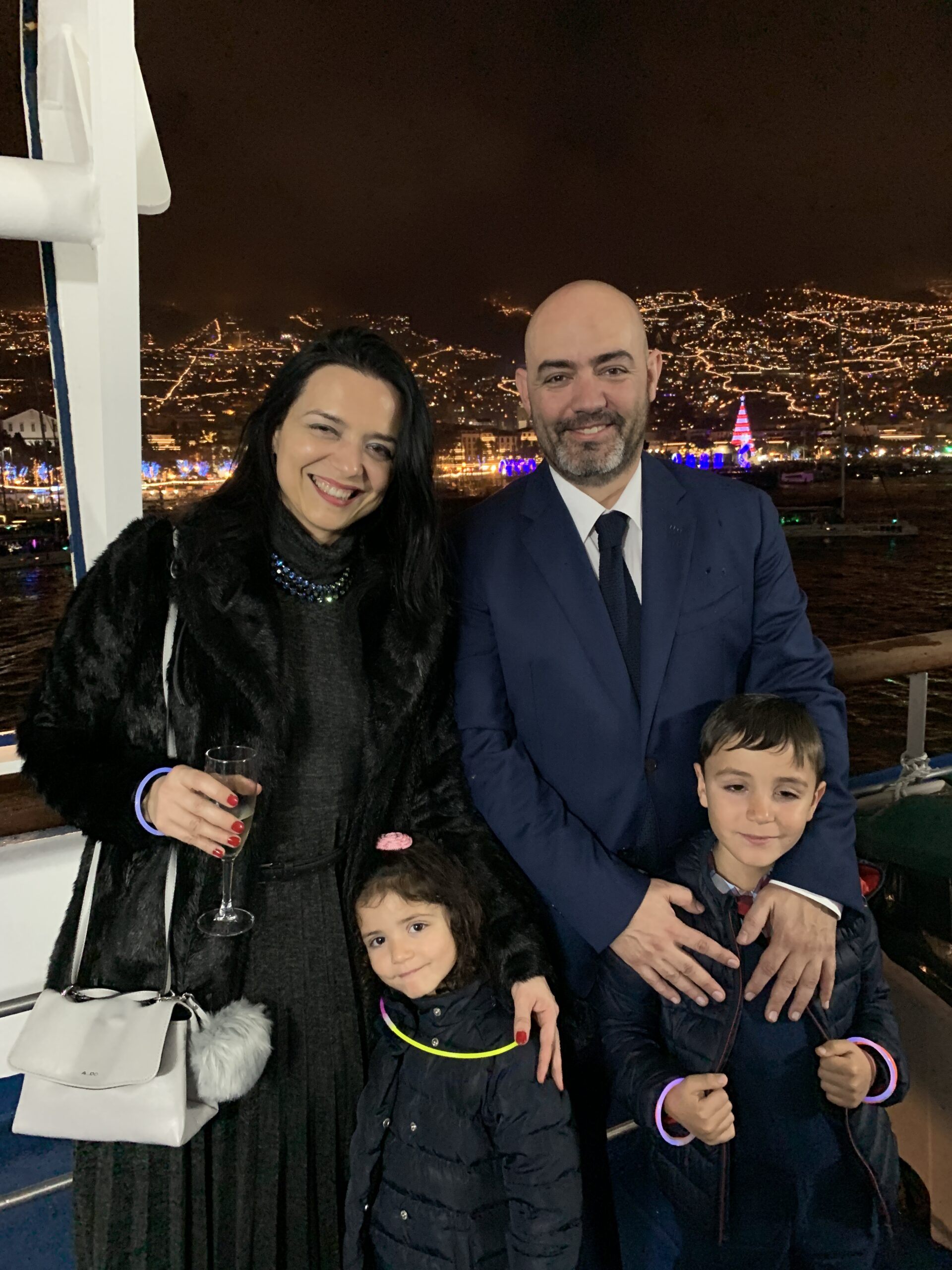
Interview with Ricardo Barros, wTVision Country Manager, Belgium Division.
– When and where were you born? Who were your parents?
I was born in Angola, in Luanda, in 1974. My father worked in a bank, and my mother did not work at that time, she only started working when we moved to Portugal. I lived in Angola for a year and a half. I was born in the year of the war, and a year after the independence of Angola we had to run away. My parents had to leave everything – they just took the money that they had and ran away.
My father was fighting in the war on the side of Portugal, trying to keep the territory. Politicians ‘sold Angola’ through the Agreement of Alvor, because a very famous politician made a deal and received diamonds, so decided that Portugal would leave. But he forgot one thing: there were millions of Portugese people who had to run away, because there was no longer peace. Anyone who was white or from Portugal was not welcome anymore, so he had to run away. So, they came to Portugal at the beginning of 1976.

– Were your parents born in Angola too?
Yes, my parents were born in Angola. My grandmother was from Cape Verde, and my other grandparents were from Portugal. My grandparents went to work in Angola, and met there. They had kids, and started to make a life there. My parents lived there their whole lives, until they were… well, my mother was 21. She had me when she was 20, and my father was 24. And they moved to Portugal. They had never been to Portugal before.
– How did they start their new life when they came to Portugal?
My mother and I went to live with my grandparents. They suffered a little bit more because my grandfather was a very important person in Angola. He had a lot of business there and lost everything. They found an apartment in Lisbon and went to work there. My father went to the center of Portugal to work as a mechanic. He had never in his life worked as a mechanic, but he needed to make money. I remember, he tells me, he was sleeping on the floor of the garage to send money to pay for my food.

– Do you remember your school years? How was it?
In the beginning, I studied at a famous Catholic school near my house. I was very lucky that my parents were able to get back into the bank business. My father always said that school was really important, so paid for me to go to private school. My first years were there, and then I moved to another location. We moved around a lot in those years. I then went to a public school, but the first four years of my studies were in a private school.
– How was going to a public school after attending a private school?
In Portugal, one thing that my parents always did, despite all the difficulties, was trying to live in the best neighborhoods. Access to public school was related to where you lived. They always looked for where the best schools were, even if it was a small apartment. The current president of Portugal studied in my high school, as well as many members of Parliament because it was in the Parliament neighborhood. So, for a public school, it was very influential.
– What subjects did you like in school?
I always liked computer science. I didn’t like subjects like physics or languages. I was always a geek, I liked learning about how to make something. This was the influence of my father, he specialized in computer science. When I was very small, I asked him for my first computer to play games. One day he came home with a computer. Then, I discovered that he bought me a Timex. He said I had to code my games. I would open the software, and use the pages and codes he gave me. I was like seven years old. I would spend eight hours coding and play for an hour because when you disconnected the game you lose everything. Every day, when I wanted to play a game, I had to code it. Maybe that’s why I became a developer!
– What kind of grades did you get in school?
I was average, I would say. My ‘fun’ side always prevailed. Today, I am very strict with my kids. But when I was younger I always thought eh, I can study later. I never dedicated myself to studying, I never took it seriously.
– What did you do after high school?
After high school, when I decided to go to college (and this shows how my mind works sometimes), I had to make a decision. I was always interested in computer science and economics. And, I don’t know why (well, I know why – the influence of my girlfriend among other things) I went to university for psychology. There were lots of ladies, it was close to the beach… so I thought, let’s go to that one. It was typical of me – let’s party and have fun, forget studying. So, I spent two years of my life at this school. It was private, and my father was paying a ton of money for it.
In two years I passed two classes – physics and computer science. I decided that I could not do this to my parents, and said I was going to give up psychology studies. I told my father I wanted to be like him and go into computer science. I went to the same school as my father. When I think about it now, it was not a good idea, because my father is the opposite of me. He would leave the bank, pick me and my brother up, and leave us in the car by the school, checking on us every hour.
My father wanted to advance in his career. He started in a low position at the bank, and after he graduated he was eventually the director of the computer science department at the bank. This was an example for me, I always say that my father is my hero. The problem was that every time I entered the school, the picture of my father was on the wall, as one of the best students of the school. This was so hard – I had no excuse now! I do this, and I don’t have a job. When he did this he had a job, was a father taking care of two kids, and was still one of the best students!
At that moment, my life changed. I started to dedicate myself more, but I was still not a great student. I would spend the entire semester partying and study for 22 hours a day just before the exams. I went to all the classes, so everything the professors said stayed in my head. It was a subject that I really loved, so it was easy for me. I would pay attention and learn a lot, but then I would not study until the exams. I didn’t fail anything and had pretty good grades.
While I was studying, I saw an ad on the wall for a part-time job. My father said it was alright, as long as it didn’t interfere with my studies. I started working in the previous wTVision, before it became this company, on the weekends. It was in 1998, so I was 24 years old. I was interviewed in that meeting by a guy with broken glasses held up by tape, in shorts. Today, he is the CEO of wTVision.
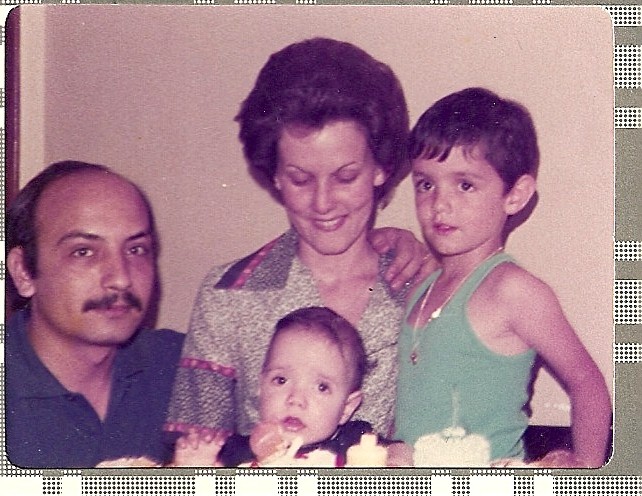
– What was your first position there?
Graphics operator – I took computers to the stadium, installed them, and did the graphics. Names of players, statistics of the teams… that was my position. This was really good – it was not a full-time job, so I could still study. I would do half-days during the week (my college only had classes in the morning) and worked full-time on the weekends. I was so dedicated, that I started to go every day, skipping school. I received notes from my colleagues and studied at night. I started to switch my priorities. I finished my degree, but I gave priority to the job.
– Where did your career go from there?
I started as an operator in 1998. I was so dedicated that they offered me a promotion in six months. I was still going to be an operator, but also in charge of preparing all the systems. I left the company in 1999 because I finished my degree. I got an offer from an insurance company to work as a developer, for almost double my salary at that time. I went there for a year, but the job was so boring. I was hired as a developer, but we outsourced a lot of the work. I would just validate and double-check it, I was essentially an analyst/project manager.
I always had a rule in my life – if I wake up too many times saying ‘I don’t feel like it’, I have to change something. I was doing almost nothing at that job, once I had to develop an application for the staff to vote for where we would go for lunch! After a year, I woke up, I went to work, and I was so bored that I picked up the phone. I called a friend of mine at the old company and told him I wanted to come back. He asked me to lunch, so I met with three of the company’s owners.
At that time, they were creating wTVision in the background. It was essentially a competitor company, so it had to be kept on the down-low. They told me about it and asked if I wanted to join. On that day, without knowing my salary, I said yes. I wrote my resignation letter to my boss and became one of the first employees of wTVision.
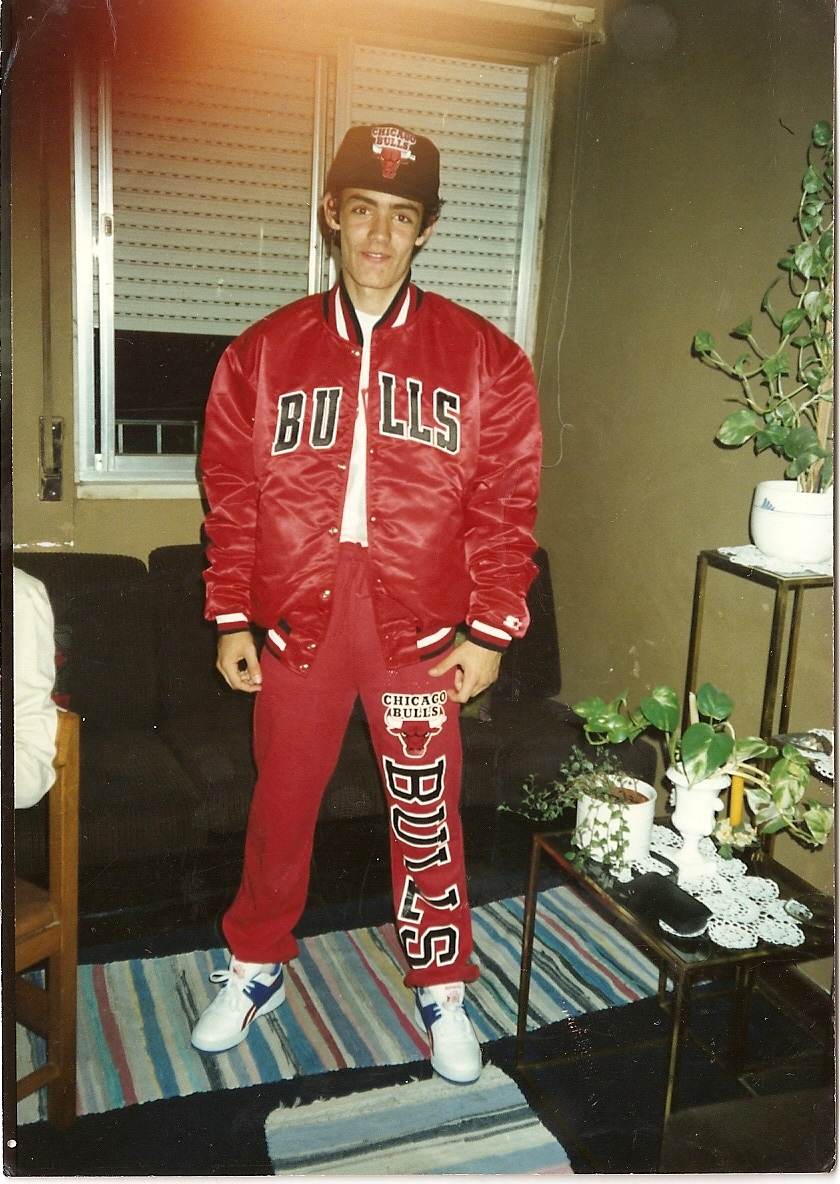
– What does ‘wTVision’ mean?
The ‘w’ stands for wisdom – ‘wisdom television’. That is our name, which became wTVision to sound good.
– When you joined wTVision, how did your career there develop?
I came back as a developer – I was one of the two developers at the time, we created the department. The company started to grow really fast. We had a really good strategy, and the best people from the old company were leaving to join wTVision, so we got all the old contracts very quickly. Very soon, we were at 90 people.
It is like a pyramid: you are at the bottom, but when the pyramid starts to grow, you get to the top. I started to grow with the company, so I became the head of the department of integration. This is a department that we still have today, linked to our software. Our software has two levels – inside the software, we have a layer of scripting. You can personalize for the clients, there is a layer of customization on the inside.
After this, I went to project management. They needed people with expertise and saw that I was able to talk to people. My team tells me every day that I am a very smooth talker, that I can make them work a lot for less money because I can convince people to love the job and do it for fun.
In 2005 we got a project in Belgium and needed someone to move there for three years for project management. After we went, the project went so well that we got another three years. When we renewed the contract, my boss said, ‘this is the moment to create the structure, to create the company there. Who better than you to manage it? It was with your work and your team that we were able to renew the contract’. At that moment, I decided that I would definitively move to Belgium.
– Why did you and your company choose Belgium?
We participated in a big tender to make graphics for the entire Belgian football league – and we won. When you win, that is around 300 games per year of operations. We were making, at that time, around 750,000 a year, and it was big. We were the first foreign office abroad, the first international experience of wTVision. Today, we have offices around the world, but we were the first ones to leave the country.
– How many offices do you have now?
Lisbon, Madrid, Barcelona, Paris, Brussels, Dubai, Florida, Bolivia, Colombia… we are worldwide.
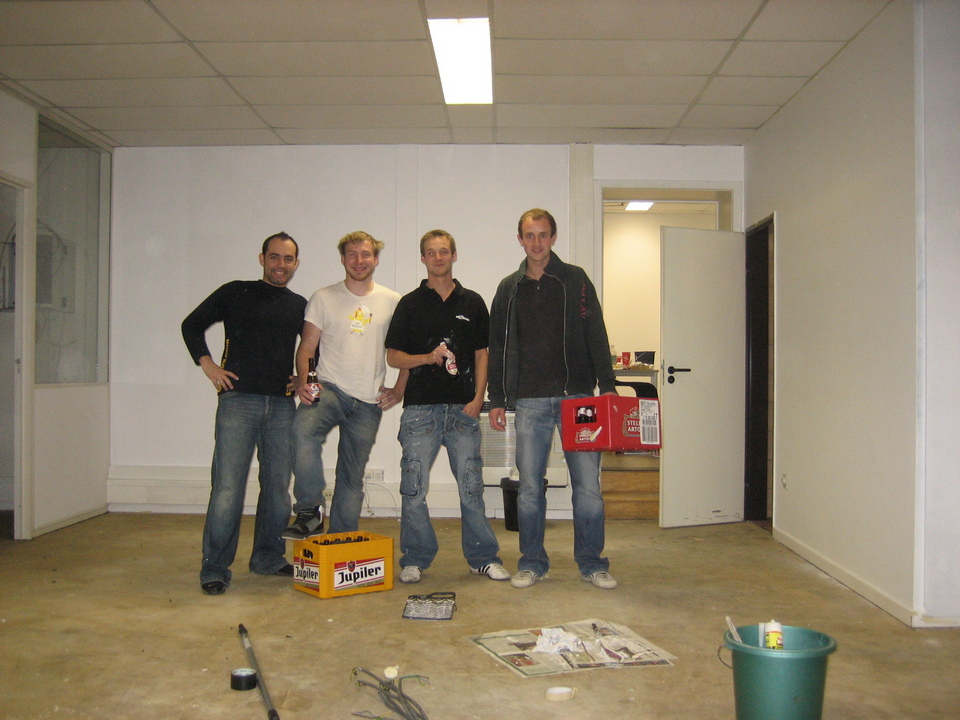
– Do you work with LaLiga?
Yes, we are the graphics company of LaLiga.
– I am a fan of Messi, and I was upset when Ronaldo left LaLiga. I really looked forward to the El Clásico matches.
Yes, it was amazing, but we still work with them. We created the office in Spain in, I think, 2009. We must not forget that wTVision is a company of which 50% is from Mediapro. Mediapro is the ‘king’ in Spain of production and broadcasting. They are the rights holders of television for the clubs, so every time someone wants to buy a Barcelona game, they have to call Mediapro and ask for the rights. So, of course, we do the graphics, because we are so linked to them.
– What about Bundesliga, is it impossible now?
Nothing is impossible! The only thing that is impossible is not to die. I continue to dream, and that is my goal, to expand to Germany.
– Do you work with FIFA and UEFA?
We work with UEFA a lot. wTVision is one of the companies certified by UEFA to do Europa League matches. We also have an internal department of branding and design, and we designed the graphics of the youth league of UEFA. We have a close relationship with them. wTVision is maybe currently second in Europe in terms of size and importance of companies on the graphics side of the football.
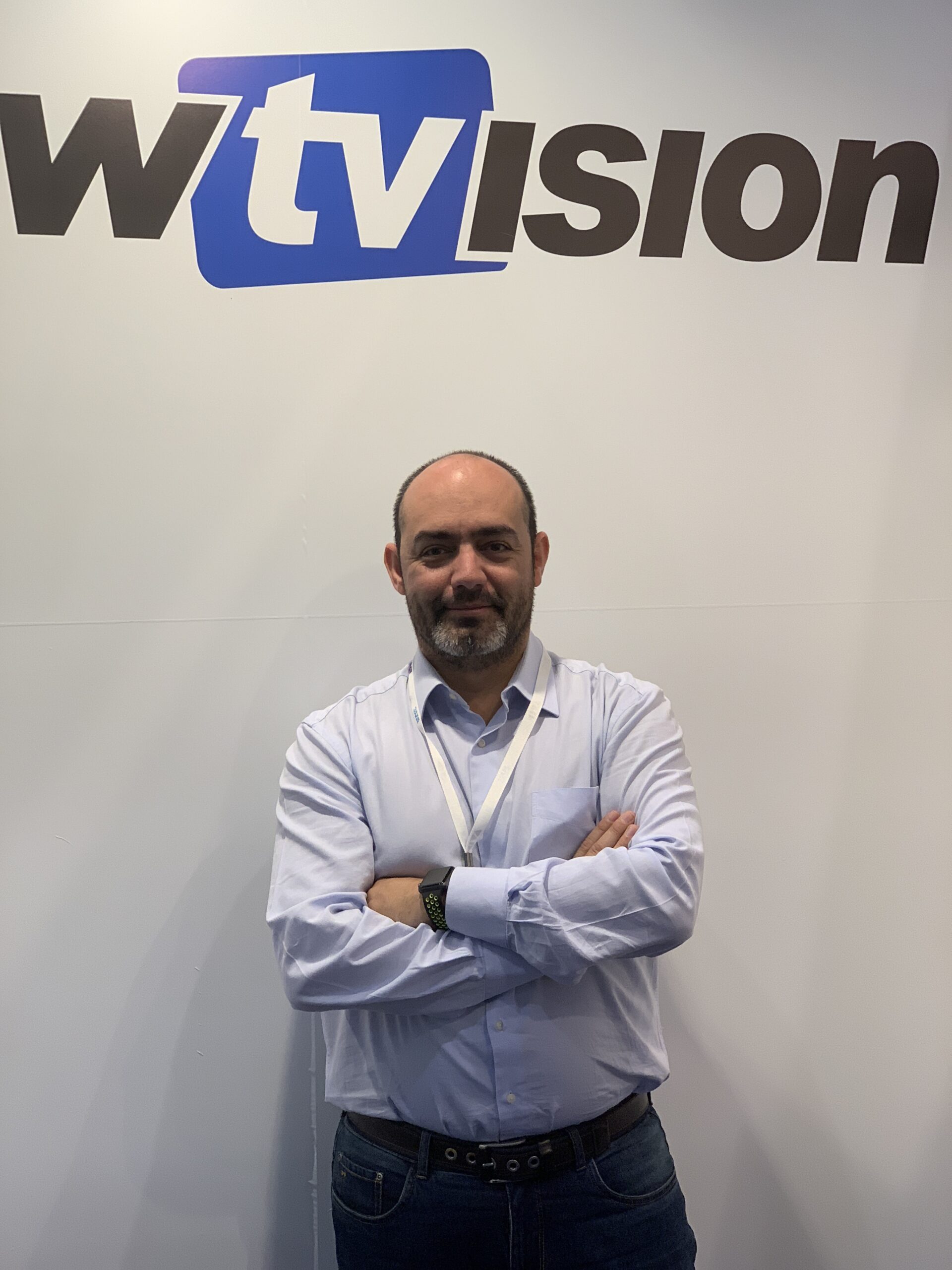
– Who is number one?
Deltatre. It has very big contracts. They have contracts for the Premier League, and UEFA, and FIFA for all the Euros and World Cups. And when you have these kinds of contracts, you care about the quality, not the money. It has to be the best technology in the world. If we look at Euros, you don’t have one graphics truck – you have two: main and backup. We don’t have that luxury, we have backup machines, but not a truck. They are bigger than us because they have a lot of money.
I think that on the quality side, all the directors that I know that work with us and with Deltatre prefer us because we are fast and qualified. Their team is very slow: they are used to working on Euros and World Cups, where you always need approval for everything. In our case, we are used to producing graphics very fast, because we don’t have to wait for approval.
– Who are your main clients in the US?
We created an office in Miami. But when you are in Miami with a company, you are not American. They look at you like South Americans. We do more jobs with Argentina, Colombia, and Venezuela than in the US. The reason the US office works with Argentina and not Brazil, is because they have a huge fight and refuse to buy from wTVision Brazil. But they are willing to buy from the same company in America.
The biggest clients we have in North America are MotoGP, and the Canadian Football League (soccer). This was the first league in the world to do virtual stadiums. Some of the stadiums in Canada are very small – football is not important for them. So, we created virtual stadiums – people at home see huge stadiums filled with stands and advertising, but it is all fake.
– You have been working at this company for over 20 years. What was the biggest achievement there for you personally?
Definitely the biggest thing for me was opening the office in Belgium. It was one of my highest moments, together with the project that I did in 2007 in Egypt. When I was project manager, the CEO introduced me to the Arabic world. In 2007, we did the Pan Arab Games; it is like the Olympics, but for Arabic countries. That year, Egypt organized them, and I was the head of the production of graphics solutions. We had a team of 50 people, 10 Portuguese and 40 Egyptian people. I had to manage 50 people for three months, and I lived in a hotel in Egypt for three months for it.
This was for the national television in Egypt, so it was huge. I was called to have a meeting with the president of the channel, who told me that this was the biggest project ever for Egypt and a huge responsibility. You just think – thank you for putting all that pressure on my shoulders! Of course, out of all of this, the graphics were the most important part. So, he gave me a team.
I have to say, it was one of the hardest projects of my life – three months, with people who are not used to working hard. I remember, one day I was very close to going to jail because I completely lost control. Whenever you asked for something, they would say ‘Inshallah’. One day, I lost control and yelled ‘I don’t care about Inshallah’. The room was silent – I had a room of 40 Egyptians looking at me like they wanted to kill me. I immediately understood my mistake.
I remember that on that day I was completely crazy – I took the elevator. I went to the last floor of the building and asked for a meeting with the president. I told him everything that was happening, that his team was not competent or giving their best. He told me that tomorrow he was going to speak to them. He spoke in Arabic. And the Arabic language, even if they are telling a joke, it seems like they are going to kill you. We also cannot forget that this guy came from the military. I don’t know what he said, but I never had a problem again in my life. They worked extra hours all the time without complaining, and we did a great job.
– Now, a bit about your life outside of work. Are you married?
I am married.
– What does your wife do?
She is a television producer. I met her in the company – I was talking with a friend of mine in the corridor, and a girl walked past. I thought, the new girl in the company. Who is she? She’s cute. And it was my wife.
– Do you have children?
Yes, I have two children – a boy and a girl, eight and six.









